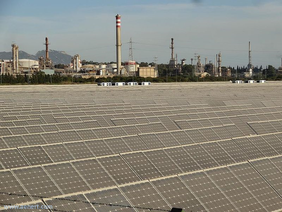In 2016, Institute Choiseul engaged in the study of global economic relations and in cooperation with KPMG published the fourth Energy Index, which evaluated 146 countries of the world in terms of energy competitiveness based on three main indicators - the quality of energy balance (bouquet énergétique), quality and the availability of electricity, and the ecological footprint (l'empreinte environnementale).
The countries within this rating are assessed according to the following criteria: the level of energy independence, the role of fossil and renewable sources in the energy balance, the consumption of electricity per capita, CO2 emissions, the number of electricity disruptions per month, and so on. The authors of the ratings rely on the data of the International Bank, the International Energy Agency, leading transnational energy companies and statistical agencies. In total, countries receive an estimate of 0 to 100, where the largest score is awarded to countries with the most efficient energy system. Depending on the assessment, countries are divided into 5 categories, from "failing"(défaillants) to "most successful" (les plus performants).
The undisputed leader of the global classification is Norway, which nevertheless this year showed a lower result of 73.3 points in comparison with the previous year - 74.8 points in 2015. The country showed indicators close to the highest in terms of the quality of energy balance, but from the point of view of the quality and availability of electricity it was 23rd (21st in 2015), and in terms of the ecological footprint Norway is 92nd (81st in 2015). The top three leaders in terms of quality of energy balance in addition to Norway are Colombia and Canada, and the highest quality and affordable electricity, according to the authors, can be found in France, South Korea and Finland. In terms of the environmental footprint, the most positive situation is observed in Nicaragua, El Salvador and Costa Rica.
Among the top 10 countries in the global classification are the countries of northern Europe - Sweden, Iceland, Finland, Denmark, as well as Switzerland, Canada, New Zealand, France, Colombia and the USA. In the "most successful" category, the majority of the countries show a positive trend, Norway, Sweden, Denmark and New Zealand - do not demonstrate any significant changes, and only Canada and Finland - show a negative trend.
African countries such as Botswana, Senegal, Burkina Faso and Benin are at the bottom of the current index and are classified as "failing".
The most significant growth in comparison with the previous rating was observed in Albania (from 96th to 46th place), and the largest drop was demonstrated by Egypt (from 59th to 100th place).
